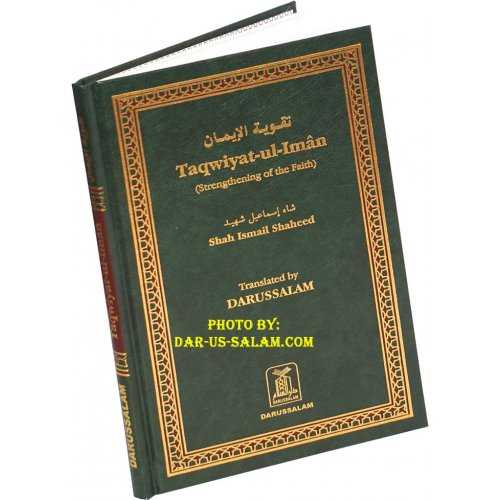The Beautiful Names and Lofty Attributes by Shaykh Ibn Baaz
The Beautiful Names and Lofty Attributes by Shaykh Ibn Baaz – The names and attributes of Allah are a very important aspect of tawheed and therefore, Islam in general. Learning them is ‘ibaadah (worship) and having a CORRECT understanding of them is instrumental in our success in this life and the hereafter.
Shaykh Bin Baaz (rahimahullah) always had a unique, concise and beautiful way of explanation both simple and complex aspects of Islam. May Allah grant him paradise FIRDAUS, ameen.
The Shaykh – hafidhahullâh – said: [1]
From îmân (faith) in Allâh is to have îmân in those of His Asmâul-Husnâ (beautiful Names) and Sifâtul-’Ulyâ (lofty Attributes) that occur in His Great Book and that have been affirmed by His trustworthy Messenger sallallâhu ’alayhi wa sallam – without tahrîf (distorting the wording or the meaning), ta’tîl (divesting or denying the Attributes), takyîf (asking how) or tamthîl (resembling Allâh to any of His creation). Rather, it is obligatory to leave them as they came, without takyîf. Along with this, it is also obligatory to have îmân in the meaning that Allâh – the Mighty and Majestic – has been described with, in a way which befits Him; without resembling Him to His creation in any of His Attributes. Allâh – the Most High – says:
“There is nothing like unto Him, and He is the All-Hearing, the All-Seeing.” [2]
Allâh – the Mighty and Majestic – also says:
“And do not put forward any similitude for Allâh. Indeed, Allâh knows and you do not know.” [3]
So this is the ’aqîdah (belief) of Ahlus-Sunnah wal-Jamâ’ah from the Companions of the Messenger of Allâh sallallâhu ’alayhi wa sallam and those that followed them in goodness. This is what has been recorded also by Imâm Abûl-Hasan al-Ash’arî (d.324H) – rahimahullâh – in his book: “Al-Maqâlât ‘an Asbâbul-Hadîth wa Ahlus-Sunnah.” This has also been stated by many others from the people of knowledge and îmân.
Imâm al-Awzâ’î [4] – rahimahullâh – said:
“I asked az-Zuhrî and Makhûl about the âyât pertaining to the Sifât (Attributes of Allâh), so they said: Leave them as they are.” [5]
Al-Walîd ibn Muslim – rahimahullâh – said:
“I asked Mâlik, al-Awzâ’î, Layth ibn Sa’d and Sufyân ath-Thawrî – rahimahumullâh – about the reports related about the Attributes, so they all said: Leave them as they are, without asking how.” [6]
Al-Awzâ’î – rahimahullâh – said:
“We – whilst the Tâbi’ûn were many – would say: Indeed Allâh – the Most Perfect – is above His Throne, and we have îmân in what is related in the Sunnah about the Attributes.” [7]
Rabî’ah ibn Abî ’Abdur-Rahmân [8] – rahimahumullâh – said:
“Al-Istiwâ (Allâh ascending) is not unknown, and how is not comprehendible, and from Allâh is the Message, upon the Messenger is to clearly convey it, and upon us is to affirm it.” [9]
Imâm Mâlik [10] – rahimahullâh – said:
“Al-Istiwâ is known, and how is unknown, to have îmân in it is obligatory and to question it is an innovation.” Then he said to the questioner: “I do not think, except that you are an evil man.” So he ordered him to be expelled. [11]
This has also been related about Ummul-Mu‘minîn Umm Salamah radiallâhu ’anhâ. [12]
’Abdullâh ibn al-Mubârak [13] – rahimahullâh – said:
“We know that our Lord – the Most Perfect – is above the heavens, above His ’Arsh (Throne), separate from His creation.” [14]
The words of the Scholars about this matter are very numerous indeed, and it is not possible to relate them all in such a short space. However, whosoever further desires to be acquainted with this topic, then let him turn to the books by the Scholars of Sunnah about this subject, such as the book:- Kitâbus-Sunnah by ’Abdullâh the son of Imâm Ahmad (d.290H), Kitâbut-Tawhîd by the great Imâm, Muhammad ibn Khuzaymah (d.311H), Kitâbus-Sunnah by Abûl-Qâsim al-Lâlikâ‘î at-Tabarî (d.418H), and Kitâbus-Sunnah by Abû Bakr Ibn Abî ’Âsim (d.287H).
Refer also to the reply given by Shaykhul-Islâm Ibn Taymiyyah (d.728H) to the people of Hamah (entitled al-’Aqîdatul-Hamawiyyah), as it is a great reply, full of benefit. In it he –rahimahullâh – has made clear the ’aqîdah of Ahlus-Sunnah, and has recorded many of the sayings of the Scholars; as well as giving proofs from both the Sharî’ah and sound reasoning about the correctness of what Ahlus-Sunnah say, showing also the futility of those who oppose them.
Likewise, his book entitled al-’Aqîdatut-Tadmuriyyah in which he established and explained the ’aqîdah of Ahlus-Sunnah with both textual proofs and proofs from sound reasoning. In this treatise he has – for all those of understanding, intending righteousness and desiring to realise the truth – thoroughly refuted all opposition, by clarifying the truth and refuting the falsehood.
All those who oppose Ahlus-Sunnah in their ’aqîdah concerning Allâh’s Names and Attributes, have indeed fallen into opposing the textual evidences and sound reasoning along with clearly contradicting all that Allâh has affirmed or negated for Himself.
So Ahlus-Sunnah wal-Jamâ’ah affirm for Allâh – the Most Perfect – what He has affirmed for Himself in His Noble Book, or what has been affirmed for Him by His Messenger Muhammad sallallâhu ’alayhi wa sallam in the authentic Sunnah. Affirming without tamthîl (resemblance) and freeing Allâh – the Most Perfect – from any resemblance to His creation, whilst also rejecting and being free from ta’tîl. So whosoever holds fast to the truth which Allâh sent, humbling and accepting it, whilst being sincere to Allâh in the quest for it, then it is the way of Allâh – the Most Perfect – that He will grant such a person harmony with the truth and show them His clear evidences, as Allâh – the Most High – mentions:
“Nay! We hurl truth against falsehood, so it destroys it; and behold, falsehood is vanquished.” [15]
And Allâh – the Most High – said:
“And no example or similitude do they bring, except We reveal to you the truth and the best explanation thereof.” [16]
Al-Hâfidh Ibn Kathîr (d.774H) rahimahullâh explained in his famous tafsîr – whilst commenting upon the saying of Allâh – the Mighty and Majestic:
“Indeed your Lord is He who created the heavens and the earth in six days, then He ascended (istiwâ) over the Throne.” [17]
He explained this issue in a most beautiful manner, which I have quoted here in its entirety, due to its great benefit.
Ibn Kathîr – rahimahullâh – said:
“The sayings of the people in this issue are very many. However, this is not the place to enter into a detailed discussion about it. Indeed, the path we traverse in this issue is to follow the way of the Salafus-Sâlih (Pious Predecessors) such as: Mâlik, al-Awzâ’î, ath-Thawrî, Layth ibn Sa’d, ash-Shâfi’î, Ahmad, Ishâq ibn Bâhâwaih, and other from the Scholars of the Muslims – both past and present. And their way is: to recite them as they are, without takyîf, tashbîh, nor ta’tîl. Indeed, Allâh does not resemble anything of His creation in any way:
“There is nothing like Him, He is the all-Hearing, all-Seeing.” [18]
Rather, the matter is as the Scholars – such as Nu’aym ibn Hammâd al-Khuzâ’î (d.228H), the Shaykh of al-Bukhârî – said: “Whosoever makes tashbîh (resemblance) of Allâh to His creation, has committed kufr (disbelief), and whosoever denies what Allâh has described Himself with, has also committed kufr … Indeed, all that Allâh has described Himself with, or what His Messenger has described Him with, then there is no tashbîh in it at all.” [19] So whosoever affirms for Allâh – the Most High – what is related in the clear Âyât and the authentic narrations – in a way which befits Allâh’s Greatness and Majesty – whilst also denying and negating from Allâh – the Most High – any defects and imperfection, then such a person has truly traversed the path of Guidance.” [20]
The Shaykh (bin Bâz) – hafidhahullâh – also said: [21]
“Tahrîf (distortion) means: changing the wordings of the Names and Attributes, or changing their meanings. Like the saying of the Jahmiyyah that istiwâ (ascending above) is istawlâ (conquering and having dominion over); and like the saying of some of the Innovators that al-Ghadab (Anger) when referring to Allâh means ‘intending to punish’ and that ar-Rahmah (Mercy) means ‘intending to send blessings.’ And all of this is tahrîf: And their saying about istawâ that it is istawlâ is tahrîf of the wording, and their saying that ar-Rahmah is intending to send blessings and al-Ghadab is intending to punish is tahrîf of the meaning. The true saying, however, is that istawâ means ascending and being above – as is clear in the ’Arabic language. And the Qur‘ân came to show that its meaning is ascending and being above the ’Arsh (Throne) in a manner which befits Allâh’s Majesty and Greatness. Likewise, al-Ghadab and ar-Rahmah are two real Attributes befitting Allâh’s Majesty and Greatness – just as is the case with the rest of the Attributes reported in the Book and the Sunnah.
Ta’tîl (divesting) means: removal of the Attributes and to deny them for Allâh the Most High. It is taken from their saying: ‘A graceful neck without adornment (mu’attal).’ So the Jahmiyyah and their like divest Allâh of His Attributes and are thus called the Mu’atillah. And this saying of theirs is totally futile, since it is not possible for there to be anything in existence without attributes – and the Qur‘ân and the Sunnah repeatedly affirm Attributes (for Allâh) in a manner befitting Allâh’s Majesty and Greatness.
Takyîf means: Explaining how the Attributes are. So it is not said: ‘How did He ascend?’ And ‘How is His Hand?’ And ‘How is His Face?’ Since, speaking about the Attributes of Allâh follows the same principle, and is treated the same, as speaking about the Dhât (Essence/Self) of Allâh. So just as He has a Dhât – and we do not know how it is, then likewise, He has Sifât (Attributes) – and we do not know how they are either, no one knows that except Him. But we believe in the reality of their meaning.
As regards to tamthîl, then it means: tashbîh (making resemblance). So it is not said: Allâh has a Dhât (Essence) like ours, or resembling ours, etc. Thus, it is not said about the Attributes of Allâh that they are like – or resembling – our attributes. Rather, the Believer must stick to His – the Most High’s – saying: “There is nothing like Him.” And the meaning is that there is none who resembles Him.”
Note: Shaykhul-Islâm Ibn Taymiyyah (d.728H) mentioned: If it is said to you: We interpret the meaning of Anger to be ‘desiring to punish’ and Mercy to be ‘desiring to send blessings’ then say: Does this desiring resemble that of the creation, or is it a desiring befitting His Majesty and Greatness? So if he says the first – then he has done tashbîh! And if he says the second, then say: Then why do you not say, ‘Mercy and Anger befitting His Majesty and Greatness?’ And this will put an end to his argument.
References
1. Al-’Aqîdatus-Sahîhah wa Ma Yudâdahâ (pp.9-13).
2. Sûrah ash-Shûrâ 42:11
3. Sûrah an-Nahl 16:74
4. He is Abdur-Rahmân ibn ’Amr al-Awzâ’î – the Scholar, worshipper and mujâhid. Al-Hâkim said: “Al-Awzâ’î was the Imâm of the people of his time in general, and he was the Imâm of the people of Shâm in particular.” He died in Bayrût, in the year 157H. Refer to at-Tadhbirab (l/178) and al-Hilyah (6/135) for his biography.
5. Related by al-Harawî in Dhammul-Kalâm (p.18).
6. Related by al-Âjurrî in ash-Sharî’ah (p.314), al-Bayhaqî in al-Asmâ was-Sifât (p.453), al-l’tiqâd (p.118) and the isnâd is Hasan.
7. Related by al-Bayhaqî in al-Asmâ was-Sifât (p.408). The isnâd is jayyid, as al-Hâfidh Ibn Hajar said in Fathul-Bârî (13/406).
8. He is Rabî’ah ibn Abî ’Abdur-Rahmân – better known as Rabî’atur-Râ’î – one of the Tâbi’ûn of al-Madînah. Al-Khatîb said: “He was a Faqîh, a Scholar and a Hâfidh in Fiqh and Hadîth.” He died in the year 136H. Refer to Târîkh Baghdâd (8/420) and Hilyatul-Awliyâ (3/259) for his biography. Related by al-Bayhaqî in al-Asmâ was-Sifât (no.516) and al-Lâlikâ‘î in Sharh Usûl I’tiqâd Ahlus-Sunnah wal-Jamâ’ah (no.665). Ibn Taymiyyah said in Majmû’al-Fatâwâ (5/365): “It is established from Rabî’ah.” He also said in al-Hamawiyyah (p.80): “Al-Khallâl narrated it with an isnâd all of whom are thiqât (precise and reliable).”
10. He is Abû ’Abdullâh Mâlik ibn Anas – the Imâm from the Atbâ’ut-Tâbi’ûn of al-Madînah and one of the Scholars of Ahlus-Sunnah. Imâm ash-Shâfi’î said: “When the Scholars are mentioned, then Mâlik is a dazzling star.” He died in 179H. Refer to Siyâr A’lâmun-Nubalâ (7/366) of adh-Dhahabî for a complete biography.
11. Related by al-Bayhaqî in al-Asmâ was-Sifât (p.516) with the wording: “Al-Istiwâ is not unknown and how is unknown, to have îmân in it is obligatory and to question it is an innovation.” Al-Bayhaqî also relates (p.516), as does ad-Dârimî in ar-Radd ’alal-Jahmiyyah (p.55) – with a jayyid isnâd, as Ibn Hajr says in Fatbul-Bârî (13/406) – that Imâm Mâhk said: “The Most Merciful ascended as He Himself described, and it is not to be asked: How? Since how is unknown.”
12. Related by al-Lâlakâ‘î in Sharh Usûl I’tiqâd (no.663). Ibn Taymiyyah said in al-Fatâwâ (5/365): “Its isnâd cannot be relied upon.” Adh-Dhahabî said in al-’Uluww (p.82): “This saying has been preserved from a group, such as Rabi’atur-Ra‘î, Mâlik and Abû Ja’far at-Tirmidhî. However, the narration from Umm Salamah is not authenhic – since Abû Kinânah is not reliable and Abû ’Amîr is not known.” So the Shaykh was indeed correct in not definitely ascribing this saying to the Mother of the Believers, Umm Salamah – and all praise is for Allâh.
13. He is Abû ’Abdur-Rahmân ’Abdullâh ibn al-Mubârak al-Marwazî. The Imâm from the Atbâ’ut-Tâbi’ûn, the Hâfidh, the Shaykh of Islâm, example for the people of zuhd and a leader of the mujâhidîn. He died in the year 181H. Refer to Târîkh Baghdâd (l/152) and at-Tadhkirah (l/274) for his biography.
14. Related by ad-Dârimî in ar-Radd ’alal-Jahmiyyah (no.23), ’Abdullâh ibn Ahmad in as-Sunnah (no.22) and al-Bukhârî in Khalq Af’âlul-’Ibâd (no.8). It was declared Sahîh by Ibn Taymiyyah in al-Hamawiyyah (no.41).
15. Sûrah al-Anbiyâ 21:18
16. Sûrah al-Furqân 25:33
17. Sûrah al-A’râf 7:54
18. Sûrah ash-Shûrâ 42:11
19. Related by Imâm adh-Dhahabî with his isnâd in al-’Uluww (no.217), and the isnâd is Sahîh and the narrators are all well-known – as al-Albânî said in Mukhtasar al-’Uluww (p.184).
20. Tafsîr Qur‘ânul-Adhîm (2/230) of Ibn Kathîr.
21. Added from the footnotes to at-Tanbîbâtul-Intîfab ’alâ mabtawat ’alayhil-’Aqîdatil-Wâsitiyyah (pp.15-16).
The Testimony of Imâm at-Tirmidhî
Speaking about those ahâdîth which mention the Attributes of Allâh, Imâm at-Tirmidhî (d.279H)- rahimahullâh – said in his Sunan (l/128-129): “It has been said by more than one person from the People of Knowledge – about such ahâdîth – that there in no tashbîh (resemblence) to the Attributes of Allâh. And the Lord – the Blessed, the Most High – descends to the lowest heaven every night. So they say: Affirm these narrations, have îmân in them and do not deny them, and do not ask how. The likes of this has been related from Mâlik ibn Anas, Sufyân ath-Thawrî, Ibn ’Uyaynah and ’Abdullâh ibn al-Mubârak, who all said about these ahâdîth: “Leave them as they are, without asking how.” Such is the saying of the People of Knowledge from Ahlus-Sunnah wal-Jamâ’ah. However, the Jahmiyyah oppose these narrations and say: This is tashbîh!!
However, Allâh – the Most High – has mentioned in various places in His Book the Attribute of Hand, Hearing and Seeing. So the Jahmiyyah make ta’tîl (false interpolation) of these Âyât and explain it in a way other than that explained by the People of Knowledge. They say: Indeed, Allâh did not create Âdam with His own Hand. And they also say that the meaning of Hand is Power.
Ishâq ibn Ibrâhîm ar-Râhawaiah said:
“ Tashbîh is if it is said: Hand like my hand, or similar to my hand. Or Hearing like my hearing, or similar to my hearing. So when it is said: Hearing like my hearing, or similar to my hearing, then this is tashbîh. But if what is being said is what Allâh has said: Hand, Hearing, Seeing; and it is not asked how, nor is it said: like my hearing, or similar to my hearing – then this is not tashbîh. Allâh – the Most Blessed, Most High – said in His Book: “There is none like unto Him, and He is the all-Hearing, the all-Seeing.” [Sûrah ash-Shûrâ 42:11]”
Share this, Baarakallaah Feekum: [“One who guides to something good has a reward similar to that of its doer” – Saheeh Muslim vol.3, no.4665] [This website protects the copyrights of the authors/publishers. If you find any copyright violations please inform the same.I ask you to fear Allah before you spread the rumors and false information]

Don’t forget to comment & share. Also please click our ads, they pay the bills. jazakallahu khayr.


